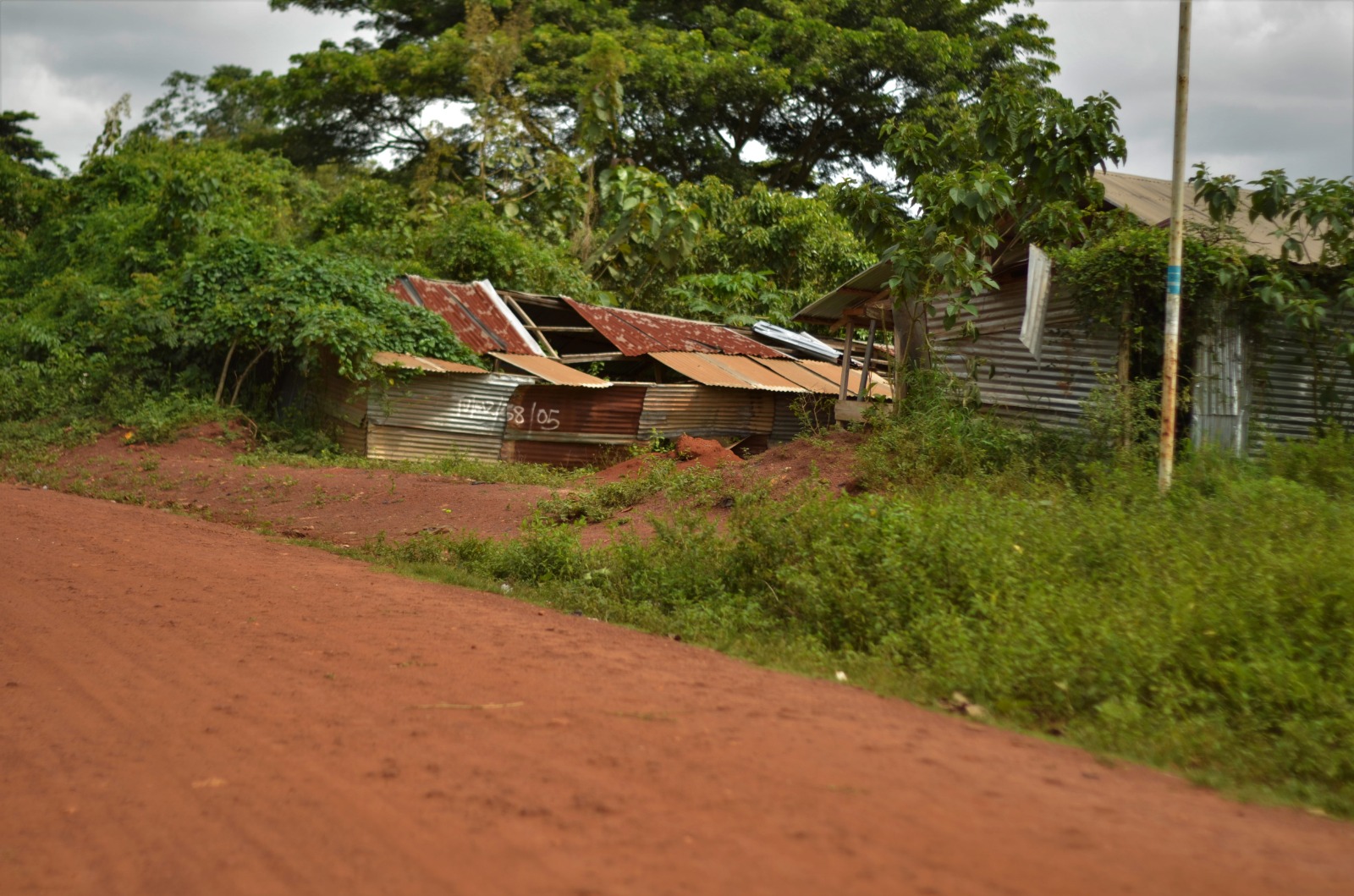
Newmont Africa’s Ahafo South Mine disclosed that a total of 830 speculative structures have been verified for compensations as the mining firm moves to expand its Tailings Storage Facility (TSF).
Out of this figure, 527 chits have processed for payments 373 have already been paid, 109 have gone stale, with the rest are being paid, and 279 structures are eligible for resettlement.
Additionally, the company noted that its 18th July 2019 drone footage which was used to determine eligibility for the 9th July 2019 cut-off, indicated that 164 structures were now eligible for full cash compensation after the shift of cut-off from 5th July to 9th July 2019.
Also, there are 292 structures identified with extensions after the change in cut-off from 5th to 9th July 2019 cut-off.
Senior officials of Newmont Africa’s Ahafo South Mine located at Kenyasi in the Ahafo Region of Ghana revealed this during a recent tour of the Dokyikrom area of the TSF project.
The affected communities comprising Dokyikrom, Yarogurima, Ananekrom, Oseiwusokrom and New and Old Daudakrom are being relocated by the company after noticing that its TSF was almost full.
So, the managers of Newmont Africa’s Ahafo South Mine sought a permit from the Environmental Protection Agency (EPA) to relocate the communities and their people within the catchment area of the project to a safe area.
The rationale behind the relocation of the communities is to make sure that if there is any impact emanating from the TSF, the people do not suffer. So, the EPA asked Newmont Africa to resettle the people before it could embark on the TSF expansion project.
The company decided to expand the TSF to enable it to store more waste so that it could produce more ores to process for gold.

Therefore, the communities closed to the TSF, per the minerals and law, must be resettled and compensated. However, the commencement of the project has been delayed due to speculative activities.
Mining industry experts referred to speculative activities as hasty, and spurious developments by community members and investors with the intent to receive compensation from mining companies.
This unhealthy practice is becoming rampant in Ghana, particularly in the Ahafo and Bono regions of the country.
“So, in trying to resolve these issues, there have been back and forth, and these are things that have delayed the resettlement that the communities are asking for”, the Manager of Communications and External Relations of Newmont Africa’s Ahafo South and North Mines, Samuel Osei told some members of Journalists for Business Advocacy (JBA).
Because without these illegalities, if we had worked with the structures that were captured during the cut-off date, we would have gone ahead by now with the project”.
He said the mining company had even fished crops compensation while moving quickly to resolve the compensation and resettlement hurdles.

Mr Osei was confident that; “if we get the cooperation of our community members, we should be able to get the challenges out of the way and ensure that the people are resettled and compensated”.
Ultimately, we want to live in harmony with our people as we have done all over the years and we want to ensure that our presence here as a company continues to the benefit of the community members and the entire Ghanaian economy”.
“If not the delays, we should have advanced with the expansion project significantly. What we are doing now is to commit to the process. As soon as we clear these delays, we will finish the project in no time”, he assured.
Mr Osei said: For us at Newmont, we are committed to ensuring that we work within the remit of the law. We work to ensure that our presence here will benefit all our community members”.
Newmont Africa’s Ahafo South Mine has resettled many people since 2006 when it started operations here. For that same commitment, it will be resettling the people of Dokyikrom who are duly impacted by its operations.
“The issues at stake must be dealt with and we commit to do so through peaceful dialogue and we ask our stakeholders to do the same so that we can cooperate and get on with the work”.
The EPA, the regional minister, and so many intermediaries have come into these issues, and they all have attested to the fact that more speculative structures have been built which should not be compensated for, but community members are demanding that they should be compensated for. In addition to the people who genuinely are entitled to compensation.

Speaking to the JBA and Ghana Chamber of Mines delegation, the Youth Leader of Dokyikrom Tutuka and member of RNC, Johnson Owusu Prempeh called on the company to give them a temporary relocation before their permanent settlement.
By Masahudu Ankiilu Kunateh, back from Ahafo Region


